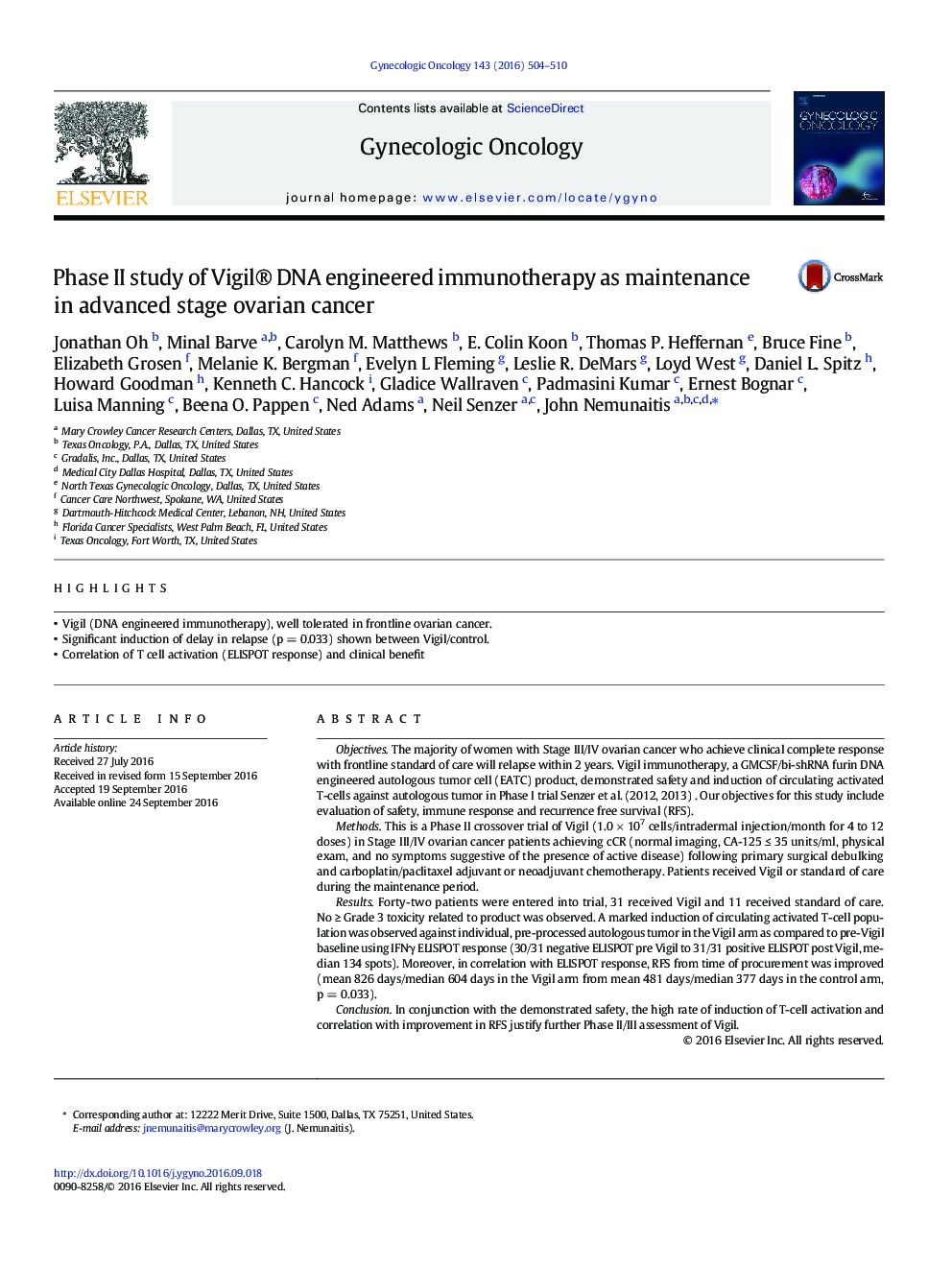| Article ID | Journal | Published Year | Pages | File Type |
|---|---|---|---|---|
| 5690685 | Gynecologic Oncology | 2016 | 7 Pages |
â¢Vigil (DNA engineered immunotherapy), well tolerated in frontline ovarian cancer.â¢Significant induction of delay in relapse (p = 0.033) shown between Vigil/control.â¢Correlation of T cell activation (ELISPOT response) and clinical benefit
ObjectivesThe majority of women with Stage III/IV ovarian cancer who achieve clinical complete response with frontline standard of care will relapse within 2 years. Vigil immunotherapy, a GMCSF/bi-shRNA furin DNA engineered autologous tumor cell (EATC) product, demonstrated safety and induction of circulating activated T-cells against autologous tumor in Phase I trial Senzer et al. (2012, 2013) . Our objectives for this study include evaluation of safety, immune response and recurrence free survival (RFS).MethodsThis is a Phase II crossover trial of Vigil (1.0 Ã 107 cells/intradermal injection/month for 4 to 12 doses) in Stage III/IV ovarian cancer patients achieving cCR (normal imaging, CA-125 â¤Â 35 units/ml, physical exam, and no symptoms suggestive of the presence of active disease) following primary surgical debulking and carboplatin/paclitaxel adjuvant or neoadjuvant chemotherapy. Patients received Vigil or standard of care during the maintenance period.ResultsForty-two patients were entered into trial, 31 received Vigil and 11 received standard of care. No â¥Â Grade 3 toxicity related to product was observed. A marked induction of circulating activated T-cell population was observed against individual, pre-processed autologous tumor in the Vigil arm as compared to pre-Vigil baseline using IFNγ ELISPOT response (30/31 negative ELISPOT pre Vigil to 31/31 positive ELISPOT post Vigil, median 134 spots). Moreover, in correlation with ELISPOT response, RFS from time of procurement was improved (mean 826 days/median 604 days in the Vigil arm from mean 481 days/median 377 days in the control arm, p = 0.033).ConclusionIn conjunction with the demonstrated safety, the high rate of induction of T-cell activation and correlation with improvement in RFS justify further Phase II/III assessment of Vigil.
